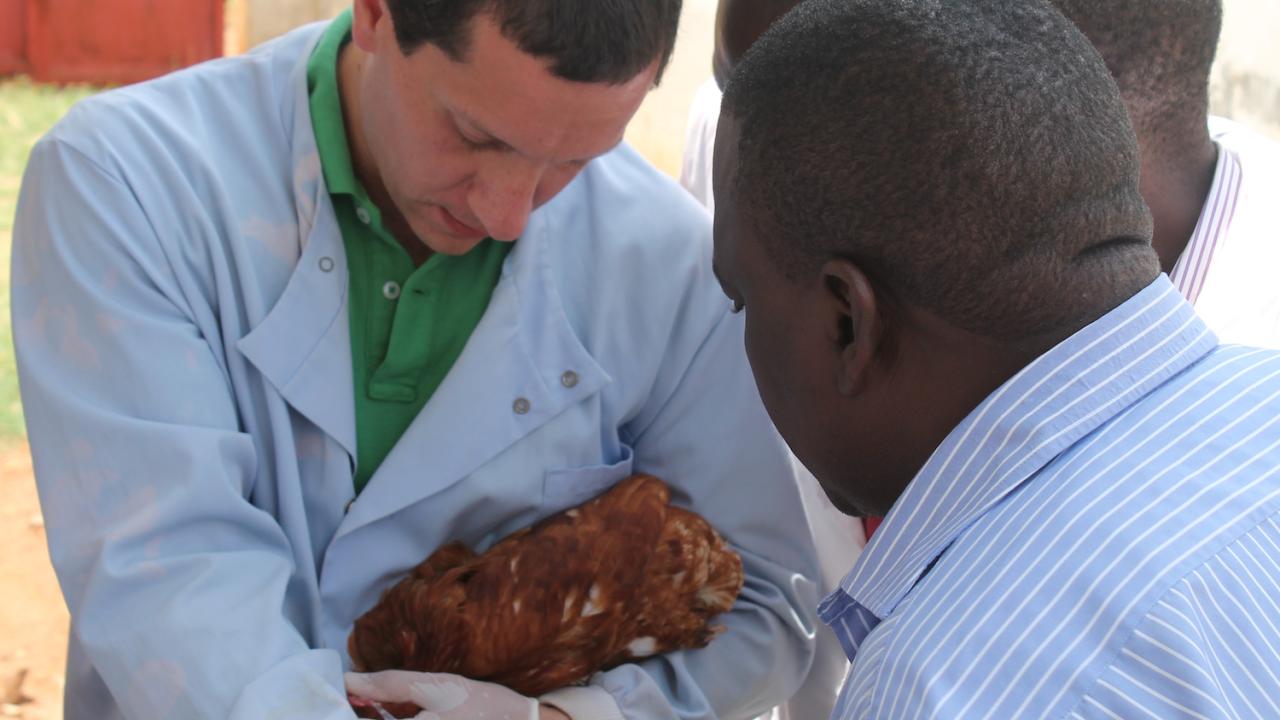
Healthy Chickens Create Healthy Communities
Dr. Rodrigo Gallardo may be a poultry medicine specialist who helps improve the wellbeing of chickens through research and education, but he also sees the far-reaching impact of his role.
“By helping villages in other parts of the world maintain healthier poultry flocks, we’re assisting communities as a whole,” Gallardo explained. “If families can increase egg and meat production in their chickens because they are healthier, they have more financial resources to spend on health care and sending their children to school.”
For the past five years, shortly after joining the school’s faculty, Gallardo has visited villages in Nicaragua to help them establish biosecurity procedures and vaccination protocols against virulent Newcastle disease virus (NDV), a deadly poultry respiratory infection causing up to 80 percent mortality in village poultry. While NDV is found world-wide, it is difficult to control outside of the U.S., especially in Central American and African countries because the strains in those countries are highly lethal and also due to the lack of infrastructure to keep vaccines viable and education to administer them correctly.
“Since there is a live virus involved, the vaccine needs to be kept chilled,” Gallardo said. “If it gets too warm, the virus will die or the titer is reduced to be nearly ineffective in the generation of immunity against NDV. It’s a basic problem, but in these areas, it’s a big deal.”
Following the success in assisting Nicaraguan communities, Gallardo focused on a project for USAID in Africa. Over the past five years, he has been collaborating with UC Davis Animal Science Professor Huaijun Zhou in a proposal for USAID that tackles the same problem of NDV, but with a different approach.
Due to the high stress that NDV causes to chickens in Africa, it is common to see some of them showing some degree of resistance. The researchers are investigating village poultry populations’ genetic conformation looking for resistance to this lethal disease. The chickens found to be resistant to NDV and heat stress—one of the biggest problems in Africa—will be bred into the chicken population, creating poultry that are stronger immunologically and also more fit to their environment. This project is close to being renewed for five additional years by USAID.
Part of the project relies on extension outreach and training to community members, Gallardo explained. The other component is determining how to breed chickens more naturally resistant to heat stress and NVD using basic science.
“Using basic research to provide a solution is novel in this case, we needed to be more creative in finding a solution,” Gallardo said. “This is One Health at its best.”
